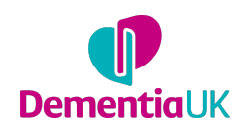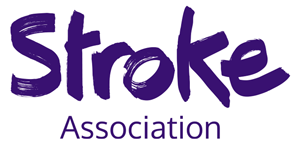We’re here for you…
Advice and Support
… to help you understand the different
types of care, what funding options
are available, and some useful contacts
We’re here for you…
Advice & Support
… to help you understand the different
types of care, what funding options
are available, and some useful contacts
We’re here to help
What kinds of care are available?
If you find you’re in a position where you’re struggling with day-to-day living, such as everyday tasks around the home, you might feel you need some help and support.
Social care and support are a range of services that provide practical solutions for those who may be recovering from illness, have a disability, or are elderly. Help can come in many forms, such as meals on wheels, having home adaptations, household gadgets and equipment, or help from a paid caregiver. Care options also include different types of housing, such as supported living services and care homes. Advice and guidance for these services can be found on the NHS page Introduction to Care and Support.
Deciding on home care from a paid caregiver is a great choice with many benefits. Home care means you can live independently, remain under your own roof surrounded by your own things, and continue to be part of your community.
Here at Wishing Well Home Care we know flexibility is key. People are all different and all have their own personal requirements. Their needs may be to provide simple solutions such as someone to do the weekly shopping and help with meal preparation, or personal care such as bathing, or getting dressed. Others may be enduring conditions or illnesses such as arthritis, dementia, or Parkinson’s that they need assistance with. But we also take into account life changing events such as bereavement, and those who simply want company due to loneliness. A cup of tea and a chat can be the best kind of care!
How and when can I start to receive home care?
You can arrange care and support privately yourself. However, if you would like the council to arrange or pay towards your care, then the first step is to get a Needs Assessment from your local council.
This will tell you what type of care will help you and how it’ll be delivered to you. You’ll need to have this assessment before the council can recommend services such as a walking frame or personal alarm, or changes to your home such as a walk-in shower. You will also need this assessment if you would like the council to help pay towards help from a paid caregiver. More information can be found on the Age UK webpage Care Needs Assessment and an application form can be found on the NHS webpage Getting a Care Needs Assessment.
How do I pay for care
Local Authority funding
If you’ve approached your local council for support with paying for home care, and you’ve been through the Needs Assessment, you will have agreed care and support plan. Following this there will be a financial assessment, also known as a means test. This is where your local council will ask about your income, savings, and property value in order to calculate how much you need to contribute towards the cost of your care and support.
But don’t worry, if you are looking to have home care and intend to stay in your own home, the means test won’t include the value of your property.
For clear advice on how much care and support costs, take a look at the NHS webpage Introduction to Care and Support and scroll down to the section titled Paying for Social Care and Support. This outlines threshold figures and will provide you with current information including any changes on the horizon.
NHS Funding
In certain circumstances, social care and support is provided by the NHS instead of your local council. In these situations, the funding is free and is not means-tested.
The circumstances may include care after illness or hospital discharge (known as reablement), or care that is provided if you have a long-term complex and serious health condition, this is known as NHS Continuing Healthcare and is funded solely by the NHS.
Self funding
If you are paying for your own fees, or self-funding, then you will be required to arrange and pay for your own care, however, your local council should provide advice to support you.
It’s important that you make sure you’re claiming all the benefits you’re entitled to, for example, Attendance Allowance is a benefit for people over State Pension age who need extra help to stay independent at home, due to an illness or disability. If you’re under State Pension age, you may be eligible for Personal Independence Payment instead. These benefits aren’t means-tested, so don’t take into account your income and savings.
If you would like to discuss your personal requirements, we would be all to happy to offer a guide to how much home care will cost over the phone. We understand everybody’s circumstances are different so we’ll do whatever we can to meet your needs.
Useful contacts




Age UK is the leading charity for older people. Visit Age UK for help, information and advice or to see how you can donate or give support.
Dementia UK is a charity that provides Admiral Nurses for families affected by dementia.
Alzheimer’s Society are the UK’s leading dementia charity, they tackle all aspects of dementia by giving help and hope to people living with dementia today and in the future.
The Stroke Association is the UK’s leading stroke charity and provides invaluable services to stroke survivors in the UK.
Useful contacts

Age UK is the leading charity for older people. Visit Age UK for help, information and advice or to see how you can donate or give support.

Dementia UK is a charity that provides Admiral Nurses for families affected by dementia.

Alzheimer’s Society are the UK’s leading dementia charity, they tackle all aspects of dementia by giving help and hope to people living with dementia today and in the future.

The Stroke Association is the UK’s leading stroke charity and provides invaluable services to stroke survivors in the UK.
Ready to chat?
Drop us a line to discuss how we can help

